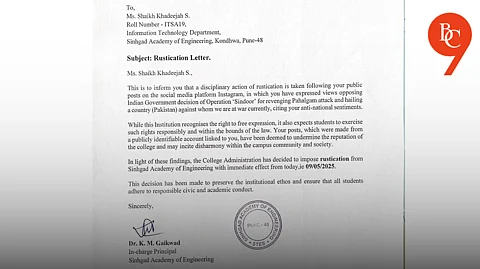

In a case that has sparked debate about free speech, due process, and government overreach, a second-year engineering student from Pune has received interim relief from the Bombay High Court after being arrested and rusticated over a controversial social media post about Operation Sindoor. The court criticized both the Maharashtra government and the student's college, highlighting the importance of upholding fundamental rights even during times of national tension.
Operation Sindoor was launched by India on May 7, 2025, as a targeted military response to the deadly Pahalgam terror attack, which claimed 26 lives. The operation involved precision strikes on nine terror camps in Pakistan and Pakistan-occupied Kashmir, aiming to dismantle terror infrastructure while avoiding civilian casualties. The high-profile operation led to heightened Indo-Pak tensions and dominated national headlines.
Amid this backdrop, a 19-year-old Pune student reposted a social media message critical of the Indian government’s actions. The post, which was deleted within two hours, triggered a wave of online abuse and threats against her. Soon after, Kondhwa police arrested her under sections related to threatening India’s sovereignty and integrity, and her college immediately rusticated her, labeling her actions “anti-national”.
After a magistrate denied her bail, the student approached the Bombay High Court, arguing that her arrest and rustication were arbitrary, violated her right to free expression, and failed to follow principles of natural justice. Her advocate stressed that she received no hearing before losing her liberty and academic standing, and that the action was disproportionate for a deleted post that expressed personal opinion.
On May 27, the vacation bench of Justices Gauri V Godse and Somasekhar Sundaresan sharply criticized the authorities, stating the student had already faced consequences and deserved a chance at reform. The court directed that she be released from jail to appear for her ongoing semester exams, noting that her remorse should be considered and that she must not be treated as a criminal for a social media post.
The court also questioned the college’s decision to rusticate her without due process, emphasizing that educational institutions must balance discipline with students’ constitutional rights.
The student’s legal team is expected to file a criminal petition for her full release, while hearings on quashing her rustication and further government action are set to continue. The outcome will likely set an important precedent for how academic institutions and authorities respond to student speech during times of national crisis.
